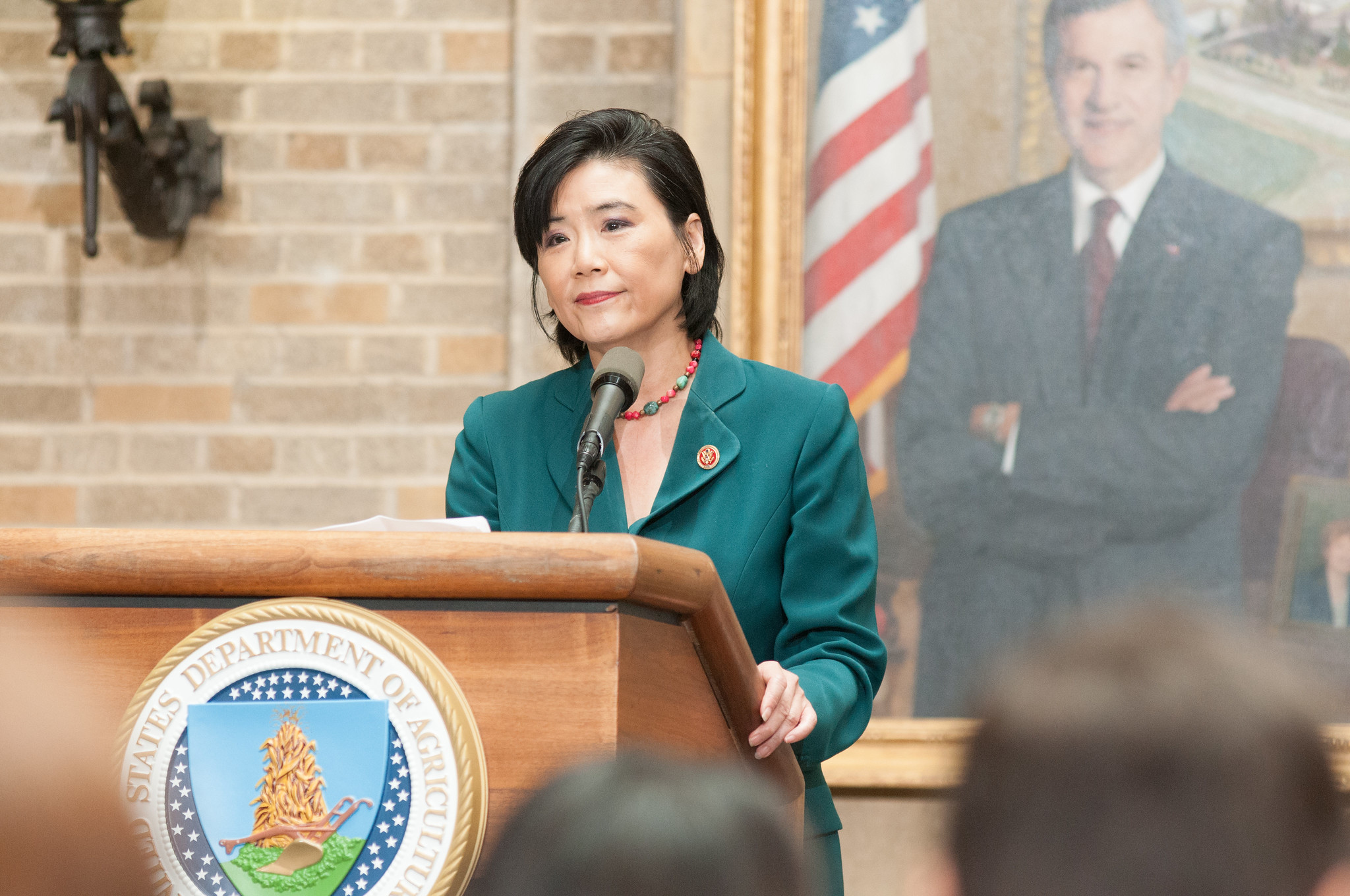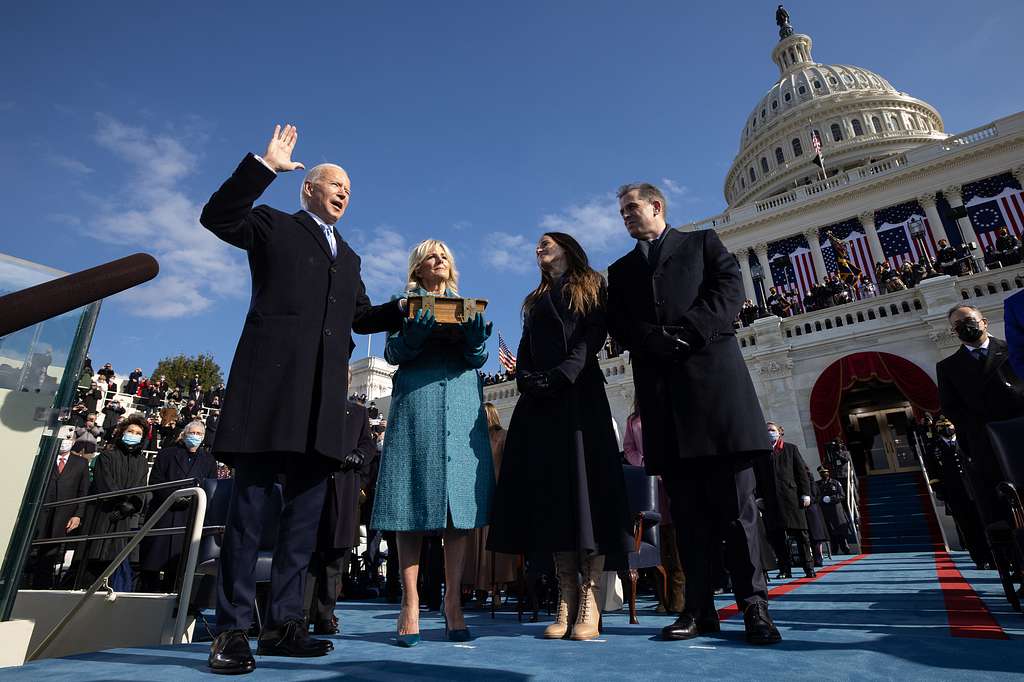Good morning, and welcome to The Yappie’s AAPI politics briefing — your guide to the policy news and activism affecting Asian Americans + Pacific Islanders. Send tips and feedback to [email protected] and support our work by making a donation.
— Edited by Shawna Chen
The Biden Era
WHITE HOUSE NEGOTIATES WITH BIG PHARMA: President Joe Biden announced that Medicare will send initial offers to pharmaceutical manufacturers of the first 10 prescription drugs selected for price negotiation. The Medicare Drug Price Negotiation Program is part of the Inflation Reduction Act (IRA) and aims to lower out-of-pocket costs for drugs that treat diabetes, heart disease, cancer, and other conditions.
- Why this matters: These negotiations are expected to have a positive impact on Asian Medicare enrollees by improving their access and adherence to medications.
- Previously, Asian Medicare enrollees reported experiencing greater difficulty obtaining prescription drugs than non-Hispanic white enrollees, according to a 2023 fact sheet published by the Department of Health and Human Services.
- An analysis by data analytics consultancy Mathematica found that Asian American and Pacific Islander groups would “experience the largest percentage decrease in out-of-pocket spending” from drug price negotiation compared to other racial and ethnic groups.
NEW POLL SHOWS FINANCIAL STRESS AMONG AAPIS: A survey conducted by AAPI Data and AP-NORC found that AAPI adults have low confidence in their ability to keep up with household expenses, with only about 30% feeling very confident. The figure reflects overall flailing confidence in Biden’s successes with the economy—and the wide gap between public perception and reality, Associated Press’ Josh Boak notes.
- The findings: “Most AAPI adults disapprove of President Biden’s handling of inflation (67%), the economy (58%), and student debt (54%) … 40% have little to no confidence they could pay for an unexpected medical bill, and 78% think Congress should tackle health care costs.”
- Also of note: AAPIs are split almost equally on the U.S.’ foreign policy approach to the Israel-Palestine conflict. 49% believe the U.S. is not supportive enough of Palestinians, while 48% believe the U.S. is too supportive of Israelis, per the poll.
ROBERT HUR REPORT SENDS WAVES THROUGH D.C.: Special counsel Robert Hur has decided not to bring charges against Biden after investigating his handling of classified documents, but that announcement was vastly overshadowed by Hur’s characterization of Biden’s memory, which he wrote in his report “appeared to have significant limitations.”
- Biden’s personal counsel accused Hur of using “highly prejudicial language to describe a commonplace occurrence among witnesses: a lack of recall of years-old events.”
- Several veteran prosecutors have since denounced Hur’s focus on Biden’s memory as outrageous and outside the scope of his role, USA Today’s Josh Meyer notes.
- Hur, a longtime federal prosecutor, was appointed U.S. attorney for the District of Maryland by President Donald Trump.
COUNTERNARCOTICS WORKING GROUP KICKS OFF: The Counternarcotics Working Group—a bilateral effort between the U.S. and China to combat the flow of illicit precursory chemicals, synthetic drugs, and fentanyl from China to the U.S.—convened for the first time in Beijing at the end of January.
- The initiative, formed in November when Biden met with Chinese President Xi Jinping at the 2023 Asia-Pacific Economic Cooperation, is a rare sign of collaboration.
On The Hill


Photo: Lance Cheung/U.S. Department of Agriculture via Flickr
RESISTING A CHINA INITIATIVE REVAMP: Democratic lawmakers are urging congressional leadership against potential reinstatement of the China Initiative, a Trump-era program that sparked accusations of racial profiling towards Asian scientists, NBC Asian America’s Kimmy Yam reports.
- Background: The Department of Justice ended the controversial initiative in 2022 following concerns over discrimination and targeting of Asian scientists—voiced by both the Asian American community and the academic community.
- The China Initiative “undermined our nation’s scientific innovation and global partnerships while perpetuating the ‘forever foreigner’ stereotype and ruining the careers and lives of the innocent scholars targeted for investigations solely because of their Chinese ancestry,” Rep. Judy Chu (D-California) said in a news release.
- Chu also noted that the failure to produce evidence of economic espionage led the Department of Justice to switch its investigations from trade secret thefts to grant application mistakes.
- Led by the Congressional Asian Pacific American Caucus (CAPAC), the Democratic lawmakers sent a letter to House and Senate leadership expressing their concerns and urging language to be struck from legislative explanatory materials that called ending the China Initiative “irresponsible.”
NO, THE CEO OF TIK TOK IS NOT CHINESE: Shou Zi Chew, TikTok CEO and Singapore native, was grilled repeatedly by Sen. Tom Cotton (R-Arkansas) on his nationality and potential ties to the Chinese Communist Party (CCP) during a recent committee hearing on online child sexual exploitation.
- Chew was one of five Big Tech executives from companies such as Meta and X who testified. Cotton’s line of questioning for Chew, however, centered on his nationality: namely, on clarifying whether or not Chew is Chinese and/or involved in the CCP.
- Context: U.S. lawmakers have remained concerned about data privacy on the app, which is operated by the Chinese firm ByteDance. Chew denied the potential of TikTok and ByteDance’s involvement with the CCP in a previous congressional hearing in March last year, but anxiety over the possibility of CCP influence and spying on the app led senators to back bipartisan legislation outlining a path to banning TikTok in the U.S. (The ban has not moved forward at this time.)
- Chew is Singaporean, as he clarified multiple times during the hearing. Cotton’s grilling and persistent suggestion of his involvement with the CCP has now sparked accusations of racism, Associated Press’ Zen Soo reports.
- The aftermath: Rep. Grace Meng (D-New York) later released a statement condemning Cotton’s “thoughtless and derogatory questions.”
- Democrats and Republicans alike have “many legitimate concerns about social media platforms,” but Cotton’s behavior only proved that he and his fellow Republicans “see Asian people as suspicious, alien, and all the same,” she said.
THEY SEE, WECHAT: A former agent for the Drug Enforcement Administration has called for the U.S. to “surveil and intercept” Chinese messaging platform WeChat, which he alleged is used for money laundering.
- Christopher Urben was one of three witnesses who testified at the Senate hearing on curbing the flow of fentanyl.
- When asked about strategies for stemming fentanyl trafficking, Urban claimed that gaining access to user data on WeChat is vital. “Whether it is additional legislation or a negotiated strategy within our executive branch of the government, we need to be able to impact WeChat so it’s not a benefit to the Chinese money laundering,” he said.
- Amid concern over Chinese surveillance, WeChat was banned from U.S. app stores by the Trump administration in September 2020 until the ban was reversed by the Biden administration in June 2021. Many WeChat users, both in the U.S. and China, rely on the app to communicate with loved ones, business partners, and overseas contacts. The app is a “lifeline for many Americans to stay in touch with family and friends in China,” New York Times’ Daisuke Wakabayashi, Cecilia Kang, and Kellen Browning report.
- Pointing out the irony: The call for surveillance access to WeChat comes as U.S. lawmakers raise the alarm about U.S. users’ data privacy on TikTok.
A POST OFFICE IN HER HONOR: The House has passed a bill to rename a U.S. Postal Service office in Boston after Caroline Chang, a community leader and activist in Boston’s Chinatown who passed away in 2019. The post office at 25 Dorchester Avenue will be the first one in Massachusetts named after an AAPI person.
- Chang was born in Boston’s Chinatown in 1940. After acting as an interpreter for residents seeking medical care in her early life, she was named community manager of Chinatown's Little City Hall, Boston.com’s Emily Spatz writes. She continued to serve and advocate for residents and founded several organizations that remain pillars of the community today.
- The bill to honor her was introduced by Rep. Ayanna Pressley (D-Massachusetts) last May during AAPI Heritage Month.
- “With nationwide attacks against the AAPI community, it is vital to commemorate leaders like Caroline whose contributions will have an impact on generations to come. I urge my Senate colleagues to pass this bill without delay,” Pressley said in a news release.
Campaign Watch


WIDESPREAD DOUBT IN GOVERNMENT: 69% of AAPI adults have “little or no faith the government will be able to make any progress on issues in 2024,” according to AAPI Data/AP-NORC polling. Only 3% are “very or extremely” in the government’s ability to make progress.
- AAPI voters are the fastest-growing demographic of eligible voters in the U.S., according to the Pew Research Center. The center projects that 15 million Asian Americans will be able to vote this election season, a number that has grown 15% from 2020.
IDENTITY POLITICS, IT’S COMPLICATED: Nikki Haley, Republican presidential candidate and daughter of Indian immigrants, has run a campaign that claims to be devoid of identity politics, despite facing racially charged attacks from her main opponent, Donald Trump.
- Haley is the only woman GOP candidate and the first prominent woman of color to get a presidential bid. Despite the accomplishments, in an episode of the podcast “Honestly with Bari Weiss,” Haley herself denounced identity politics.
- “Identity politics is when you divide people based on what you are. I’m not dividing people based on what I am—I’m trying to show people that we are all more similar than we are different,” she said.
- Still: Haley sometimes ties her identity as the daughter of Indian immigrants to politics. She’s mentioned how her mother is critical of illegal U.S.-Mexico border crossings because she herself immigrated legally.
- “She’s really claiming her ethnic identity and using it to tell a compelling story about the American Dream. And then on the other, she’s minimizing it and erasing it and acting like it has no bearing on who she is,” Hajar Yazdiha, a sociology professor at USC, told Associated Press’ Meg Kinnard and Matt Brown.
- Yes, but: She continues to face race-based attacks from opponentTrump, under whose administration Haley served as U.N. ambassador.
THE BIG DROP: Vivek Ramaswamy has officially suspended his campaign and endorsed Trump, but we haven’t seen the last of him. The Indian American entrepreneur said he may be open to vice presidential consideration.
- During his run, Ramaswamy was “deeply in touch with his Indian roots and adamant that the growing focus on diversity and racial inequality in America has come at the cost of national unity,” New York Times’ Amy Qin reports.
- Why this matters: Ramaswamy, Haley, and Kamala Harris represent the rising political power of Indian Americans and serve as “a reminder of the nuanced views within the Indian diaspora,” Associated Press’ Deepa Bharath writes.
🥰 Enjoying The Yappie? Make a donation, forward this briefing to a friend, or subscribe here. You can also follow us on Twitter, Instagram, and Facebook.
The Yappie is your must-read briefing on AAPI power, politics, and influence, fiscally sponsored by the Asian American Journalists Association. Make a donation, subscribe, and follow us on Twitter (@theyappie). Send tips and feedback to [email protected].









